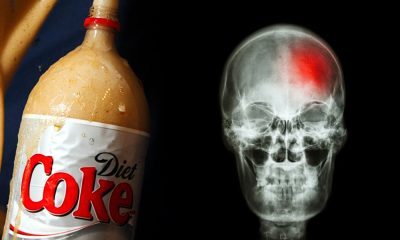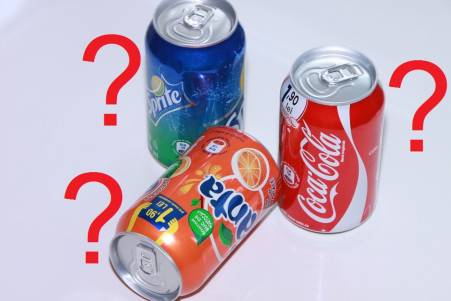Diet drinks are mostly thought of to be healthier than regular soda. However, despite the widely known misconception, diet drinks are actually much more dangerous.
Many people don’t question the ingredients that are really in their foods, especially today. People automatically assume that diet drinks are healthy for you just because they have less sugar and calories. Most people are not aware that companies like Coca-Cola and Pepsico. replace sugar and calories with ingredients that not the same, but taste similar. Although their products might be rather tasty, they’re horrible for your body.

One of the main ingredients that is in diet soda is aspartame. Aspartame is an artificial sweetener to replace the sugar from a regular soda. While it tastes very similar, it is nothing like sugar. Aspartame is a laboratory-engineered chemical that is terrible for your body. It’s not just ‘bad’ for you either; it’s literally poison. It can triple your risk of stroke and Dementia a new study finds.
The study was performed by scientists from Boston University. They studied over 4,400 different adults to really find out the effects of chemicals in diet drinks. They conclude that adult who has one diet drink per day are three times more at risk of suffering from stroke and dementia. The researchers conducted this study for almost ten years. The daily mail reports that the team concluded adults who had more or more diet drinks a day were 2.9 times more likely to develop dementia and 3 times more at risk for strokes or other cardiovascular issues.

Matthew Pase, a senior fellow in the department of neurology at Boston University School of Medicine, states:
“Our study shows a need to put more research into this area given how often people drink artificially sweetened beverages. Although we did not find an association between stroke or dementia and the consumption of sugary drinks, this certainly does not mean they are a healthy option.”

“We recommend that people drink water on a regular basis instead of sugary or artificially sweetened beverages,” Pase added.
The team urges healthcare professionals to stop promoting diet drinks as a suitable replacement for regular soda. This isn’t the only study that has been performed on diet drinks and their effects either. Other findings were revealed by research performed by the Imperial College in London. It was published in the American Heart Association’s Journal Stroke, and it followed 4.372 adults over the age of 45. Each participant filled out a questionnaire about the daily food and drink intake.
ALSO READ:17 Reasons Why diet soft drinks are dangerous to your health
In regards to the latest research, Dr. Rosa Sancho, Head of Research at Alzheimer’s Research UK, said:
“As people are becoming more aware of the consequences of a high-sugar diet, many are turning to artificially-sweetened diet fizzy drinks as an alternative to those with lots of sugar. Future studies will need to confirm these findings in other groups of people, and explore what might be underlying any link between artificially-sweetened soft drinks and dementia.”
Gavin Partington, director-general of the British Soft Drinks Association, disagrees with the empirical data. He commented on the finding,
ALSO READ:Scientists recommend eating of crickets to stay healthy
“Despite their claims, the authors of this observational study admit they found no cause and effect and provide no science-based evidence whatsoever to support their theories. In fact, based on the evidence, Public Health England is actively encouraging food and drink companies to use low-calorie sweeteners as an alternative to sugar and help people manage their weight.”






Discussion about this post